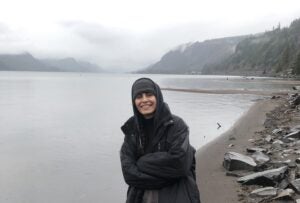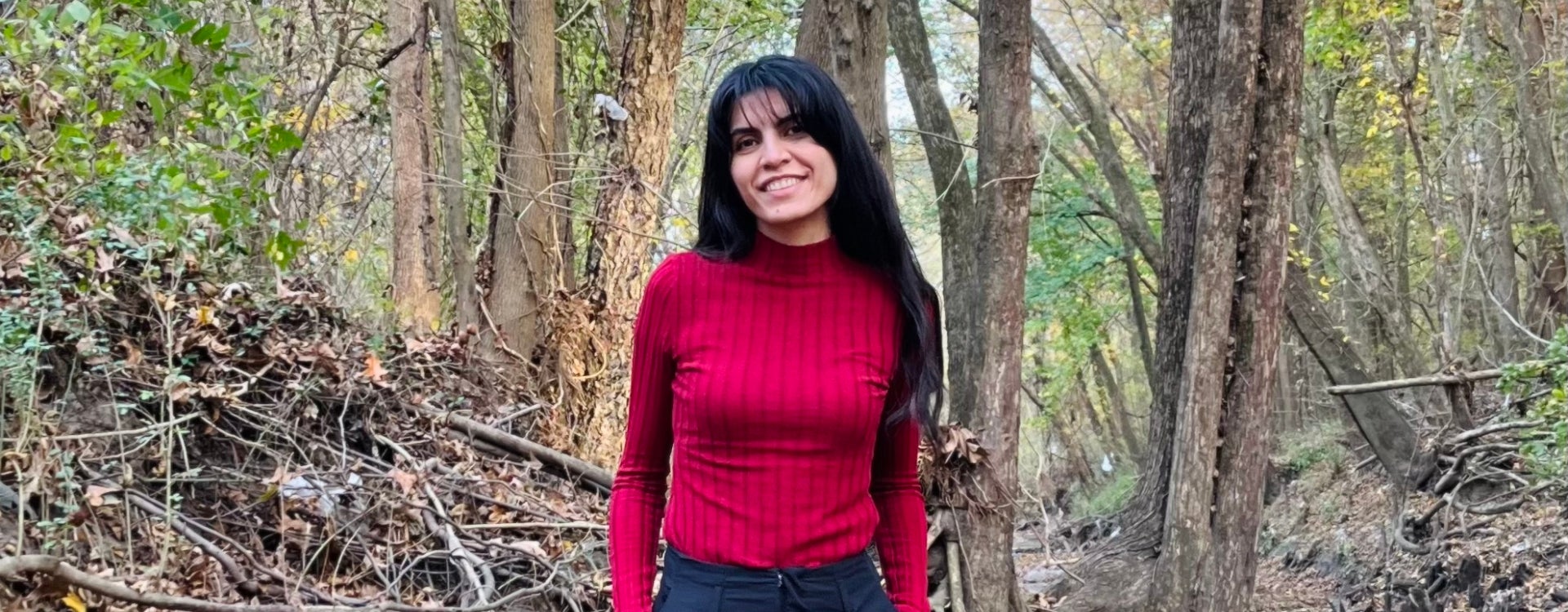Water Scholar Awardee Fall 2023: Neda Safari
"Rewilding the River: Assessing the Environmental Effects and Regulatory Influences of the Condit Dam Removal Process"
Neda Safari grew up in Iran before coming to the United States to pursue a Master of Science in Geography at East Carolina University. Safari specializes in the area of environmental geography with a specific focus on water resources management. She said she decided to study geography due to her keen interest in natural resource management and the interaction between humans and the environment.
Safari started working with the Water Resources Center through the WaterCorps program in the summer of 2023. She said she was thrilled to be provided with the opportunity to work with so many “brilliant people” and has greatly expanded her knowledge and skills ever since.
She said she learned about the Water Scholar program through the WRC faculty members. Since her thesis research was concerning water resources management and human interaction, she decided to apply for the Water Scholar opportunity and was awarded in the fall of 2023.
Her research project: “Rewilding the River: Assessing the Environmental Effects and Regulatory Influences of the Condit Dam Removal Process,” focuses mainly on the conduct of an in-depth assessment of the ecological and physical changes occurring in the White Salmon River in Washington State following the demolition of the Condit Dam.

Neda Safari at the White Salmon River in Washington State.
Safari said a significant objective of her study is to assess the current legal and policy frameworks that govern the implementation of dam removal and river restoration initiatives in the United States. This procedure involves conducting interviews with stakeholders and individuals involved in the Condit Dam removal project and oversees how the current policy frameworks affected the project itself.
“I chose to work on this topic because dams have had a significant impact on freshwater ecosystems; they have changed the water’s physical and chemical properties and the landscapes around it,” Safari said. “There are some important challenges and constraints imposed by the current legal frameworks governing dam removal, which can affect the timeline and the process of dam removal.”
The funds provided by the Water Resources Center will go towards research-related travel expenses, to engage with stakeholders, and to conduct interviews to gain a deeper understanding of the physical and environmental aspects of the Condit Dam removal process, she said.
Safari said she is currently working on the project and is determined to complete it by May 2023.
“I established a timeline for my project and am actively adhering to it to accomplish my research objectives,” Safari said. “I am certainly interested in undertaking a similar research project in the future, as this work is connected to ongoing initiatives taking place throughout the United States, such as the Klamath Dam removal.”
For her future career path, Safari said she is interested in pursuing advanced academic studies and obtaining a Ph.D.
“I am interested in conducting my future research in the field of human activities’ interaction with water resources and river ecology, which aligns with my area of interest,” Safari said. “In particular, I aim to examine policies that could enhance this interaction with the goal of reducing the negative impact on natural resources.”
She said she aims to apply the knowledge and problem-solving skills she is currently acquiring to address a wide range of issues and challenges that we, as humans, encounter in our environment.
About Me
Name: Neda Safari
College: The Department of Geography, Planning and Environment
Classification/Focus: Second-year master’s student in Geography, Certificate in Geographic Information Systems
Home country: Iran
Bachelor of Science: Urban Planning
Future Plans
Ph.D: Safari hopes to start her Ph.D. in 2023
